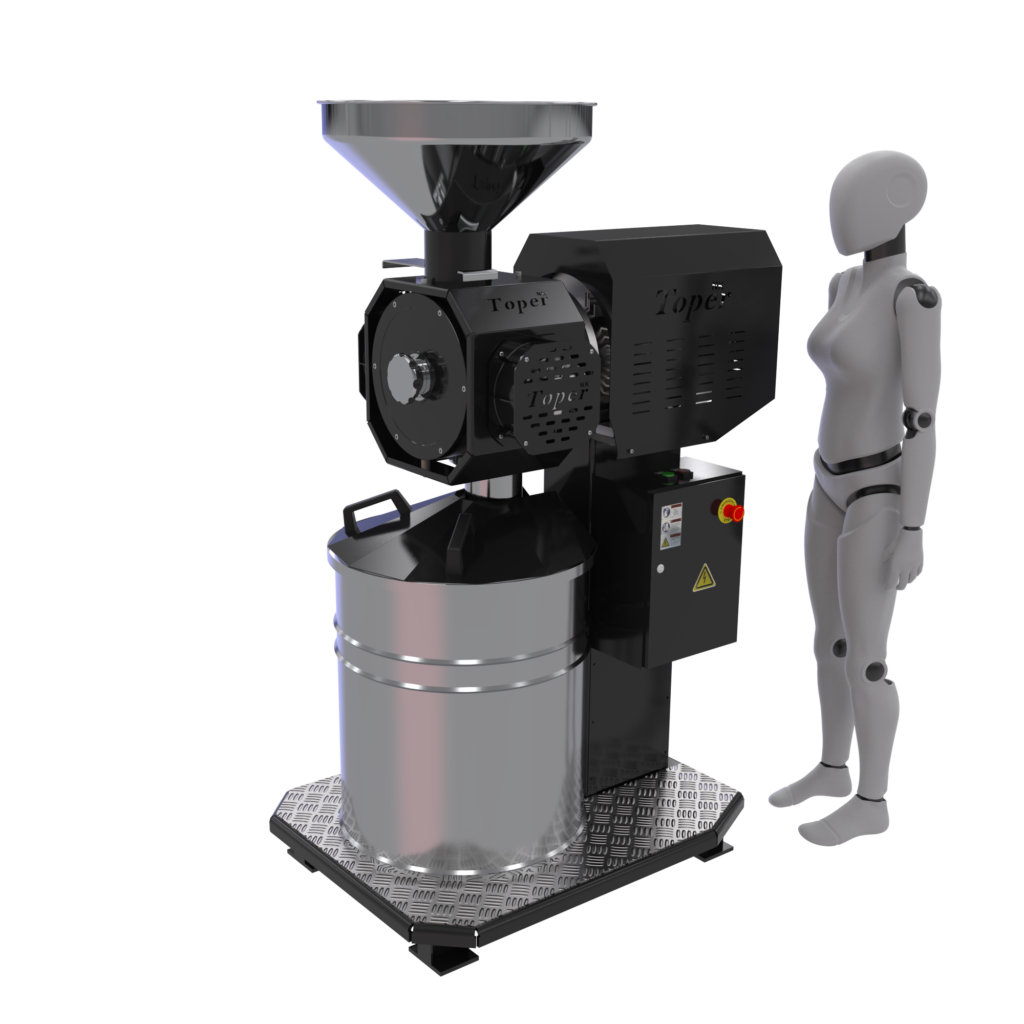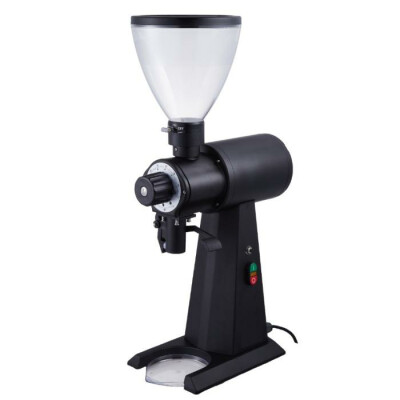A Beginner's Guide to Industrial Coffee Grinder Choices
A Beginner's Guide to Industrial Coffee Grinder Choices
Blog Article
Exactly How to Pick the Perfect Industrial Coffee Grinder for Your Business
Choosing the suitable industrial coffee mill for your service is a diverse choice that calls for mindful consideration of a number of crucial variables. It is necessary to assess your certain grinding demands, consisting of the volume of coffee refined and the wanted grind uniformity, as these elements straight impact taste and client contentment. Furthermore, understanding the different sorts of mills offered can significantly influence your functional performance. As you navigate these factors to consider, one should also consider the effects of budget and maintenance. What other factors could make or break your option?
Assess Your Grinding Requirements
When choosing an industrial coffee grinder, one should first examine their grinding requirements to make sure optimum performance and consistency. This initial analysis includes recognizing the volume of coffee to be processed daily, as well as the desired grind size for various brewing methods. A high-capacity grinder might be essential for businesses offering big quantities of coffee, while smaller operations might locate a much more small model sufficient.
Furthermore, it is important to think about the types of coffee beans being utilized, as different beans may call for certain grinding methods to achieve the very best flavor profile. Oily beans could necessitate a grinder made to take care of such attributes without clumping or overheating.
Specialized coffee companies often demand exact work sizes to enhance extraction and taste, making it essential to choose a mill that can supply consistent outcomes. Assessing the offered room and electric requirements will certainly aid in selecting a grinder that fits effortlessly into your operational workflow.
Understand Mill Kind
Comprehending the different kinds of commercial coffee mills is crucial for making an informed option that fulfills details functional needs. There are primarily two categories of grinders: blade grinders and burr grinders.
Blade grinders utilize rotating blades to chop the coffee beans, resulting in an irregular work dimension - Industrial Coffee Grinder. While they might be a lot more budget-friendly, they are commonly not ideal for business applications where precision is vital
On the various other hand, burr grinders provide a more consistent work by squashing the beans in between two surface areas. They can be more classified into flat burr and conical burr mills. Flat burr grinders provide a consistent grind dimension and are commonly preferred for espresso preparation, while conical burr mills are functional and can manage a series of brew approaches, from coffee to French press.
When choosing a grinder, consider the details requirements of your service, consisting of preferred work uniformity, production quantity, and the types of coffee drinks you prepare to offer - Industrial Coffee Grinder. Each mill type has its restrictions and advantages, so recognizing these subtleties makes it possible for educated decision-making that aligns with functional objectives
Evaluate Grind Size Consistency
Accomplishing grind size consistency is important for generating top notch coffee, as variations in fragment dimension can considerably influence extraction and taste. When selecting a commercial coffee mill, it is essential to assess just how well the device keeps harmony in work dimension throughout various batches. Inconsistent grind dimensions can bring about irregular extraction, leading to a mug that may taste weak or excessively bitter.
To evaluate work dimension uniformity, take into consideration grinders with functions such as adjustable grind setups and top quality burrs. Burr mills, in particular, stand out in producing consistent fragment sizes contrasted to blade mills. The product and form of the burrs play a crucial duty, with stainless-steel and ceramic options offering durability go to the website and precision.

Think About Production Capability
In the hectic world of coffee production, taking into consideration production capacity is critical for companies aiming to meet demand without anchor compromising top quality. The manufacturing ability of an industrial coffee grinder directly influences a business's capability to meet orders effectively, handle stock, and reply to varying market patterns.
When analyzing manufacturing capability, it is vital to examine the grinder's output price, generally gauged in extra pounds per hour. This dimension ought to align with your business's projected sales volume and development targets. A coffee shop with a high turnover might call for a grinder that can process a number of hundred extra pounds daily, while a smaller sized operation could be sufficient with a lower capacity model.
In addition, think about the sort of coffee being refined. Different beans and blends might affect grinding rate and efficiency, demanding a grinder with the ability of managing diverse production demands. It's also worth considering the grinder's capability to maintain constant top quality under high result conditions, as any kind of fluctuations can influence the end product.
Eventually, picking a mill that matches your service's production capacity will certainly ensure you remain competitive and receptive to you could look here client assumptions.

Budget and Upkeep Elements
When reviewing the best commercial coffee budget, grinder and maintenance variables play a considerable duty in the overall decision-making process. An initial investment in a top notch mill can generate long-term benefits, however it's important to establish a clear budget that aligns with your company's operational requirements. Think about both the purchase cost and prospective functional expenses, such as energy usage and replacement parts.
Industrial coffee grinders call for normal upkeep to ensure optimum efficiency and longevity. Review the supplier's recommendations for maintenance, consisting of cleaning schedules and components replacement, as these will certainly impact lasting functional prices.

Purchasing a mill that is resilient yet easy to keep can save money with time. While lower-priced options might be tempting, they might sustain higher upkeep costs and minimized efficiency. Inevitably, balancing preliminary prices with lasting upkeep and operational efficiency will certainly lead you to the most effective selection for your business's coffee grinding requirements.
Verdict
Selecting the ideal industrial coffee grinder necessitates an extensive examination of grinding requirements, mill kinds, grind dimension uniformity, manufacturing ability, and monetary factors to consider. An appropriate grinder not only boosts the top quality of the coffee generated yet additionally adds to the general success and earnings of the business.
Specialty coffee companies commonly demand accurate grind dimensions to boost extraction and flavor, making it vital to choose a mill that can supply uniform results. Apartment burr mills provide a consistent work dimension and are commonly preferred for espresso prep work, while conelike burr grinders are versatile and can handle an array of mixture methods, from espresso to French press.
When picking a commercial coffee mill, it is critical to examine just how well the maker preserves harmony in work size throughout different sets. Burr grinders, in particular, succeed in creating uniform particle sizes contrasted to blade grinders.Picking the excellent industrial coffee grinder demands a comprehensive assessment of grinding demands, grinder kinds, grind size uniformity, manufacturing capacity, and financial considerations.
Report this page